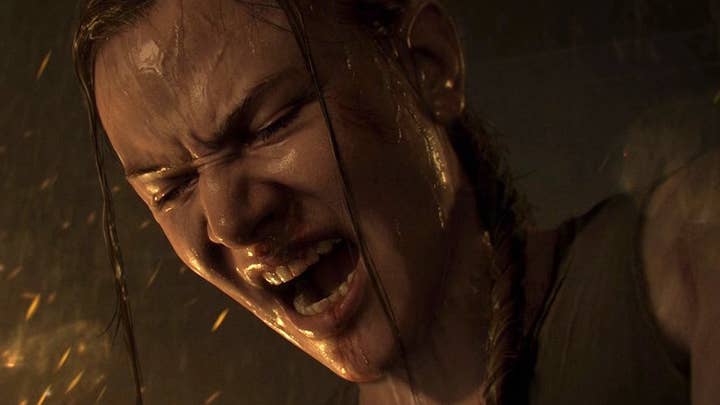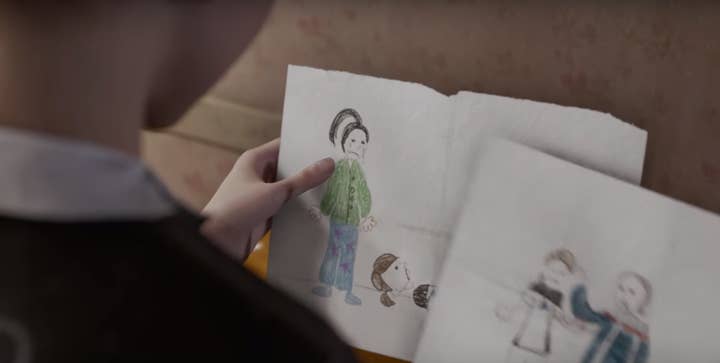The Trouble with Trailers
Developers have learned to deal with violence and difficult themes intelligently and respectfully in recent years - it's time for marketing teams to catch up
Video games have come an incredibly long way as a storytelling medium; not just in terms of the kind of storytelling enabled by technological progress, but in terms of how much the people who design games and their narratives have learned about the possibilities of the medium and how best to let players experience stories within game worlds.
Shooting the bad guys and saving the world is still the bread and butter of many great games, but where developers choose, they can also give us characters and narratives that let us experience and engage with a whole range of complex and difficult topics. Just thinking back over games in my own recently played pile, I can readily name games that have deftly handled themes like love and loss, friendship and loyalty, bigotry and discrimination; each handled in a way unique to video games as a medium, far removed from the clumsy cutscenes that used to be the primary vehicle for such narratives.
"The Last of Us' narrative violence is carefully contextualised and justified at every turn; never simply thrown at the player to shock them"
One genuinely great example of a video game that tackled serious, difficult themes in a way unique to games is Naughty Dog's The Last of Us. The game opened with a violent and shocking scene and spent much of the rest of the game carefully and methodically exploring its impact on the central character and showing that character overcoming the trauma, even in the midst of further violence, through the unhurried, beautifully-paced development of the relationship central to the game.
While The Last of Us falls back on the convenient 'zombies, not people' trope for its gameplay violence, its narrative violence is carefully contextualised and justified at every turn; never simply thrown at the player to shock them and then quickly moved past, as can be the case in other, less well constructed narratives.
What I'm saying here is that Naughty Dog has earned the benefit of the doubt in terms of its understanding of how to use violence in a narrative - even especially shocking or troubling violence.
The degree of violence seen in Paris Games Week's The Last of Us: Part II trailer a few days ago - which starts with a young woman being half-hanged, and proceeds through another being held town and tortured by having her arms broken with a hammer - is gut-wrenching, but in the context of the game itself, will almost certainly be justified by the narrative and handled intelligently in the context of the characters' journeys. Naughty Dog has earned sufficient respect that we should trust they won't throw a horrific scene like that into the game simply to shock, or to try to establish some kind of 'edgy' credentials.

The kicker is this; Naughty Dog has earned that respect. The marketing team that cut together that trailer? They haven't, and they don't deserve it. Sony, as a publisher? I'd love to say they have, because perhaps more than any other publisher they've shown a willingness to really back creators who push games into uncharted waters, narratively and otherwise.
But Sony's marketing has all too often done the company's games a disservice by reaching for the low-hanging fruit of shock tactics and 'look guys, we're so edgy and mature' tropes straight out of a heavy metal obsessed 14-year-old's sketchbook (I may be showing my age here, as I have a suspicion 14-year-olds are now unlikely to be into heavy metal, but you all got the reference so let's quietly ignore our advanced years together).
"Unless The Last of Us: Part II really is a torture-porn extravaganza, the trailer has misrepresented it and its tone"
Building a trailer around that scene almost certainly does TLoU2 a disservice, because unless the game really is a torture-porn extravaganza, the trailer has misrepresented it and its tone - and for many fans of the first game, the implication that this sequel will be darker and bleaker... Well, did anyone really play The Last of Us and think, 'you know, that was great but what it really needed was a bit less hope and humanity'?
More importantly, though, it comes across as rather obnoxious and childish. Picking out what is likely one of the most gruesome scenes in the game and playing it as a trailer, free of context, really just suggests a marketing team that feels like its main goal must be to prove how 'mature' the game is, ticking off 'adult themes' like it's in a feature checklist on the back of the box.
Worse is the fact that this trailer was dropped without warning into the middle of a press event that was live-streamed across Europe at around six in the evening, and filled mostly with kid-friendly games. I roll my eyes at a fair bit of parental outrage over games (my glib, obviously-not-a-parent-myself solution to most of it being "try not buying him a copy of GTAV then?") but I have a hell of a lot of sympathy for a parent who looks away for a few minutes from their kid watching a video of the new Spider-Man game, and when they turn back he's gawping at a woman being held down and having her elbows broken with a hammer.
"Creators are setting out to do justice to the tough themes they've chosen to deal with - but the people who created the trailers have instead thrown them at audiences, begging us to acknowledge how mature it all is"
This isn't an isolated incident, either. The industry has something of an ongoing problem with trailers, and I genuinely think it stems from the fact that marketing teams' ideas about game content have not progressed remotely as much as developers' ideas - or consumers' for that matter.
We've reached a point where games are capable of constructing narratives and context that effectively deal with tough subjects. But whether it's Naughty Dog handling gruesome torture and lynching, or David Cage dealing with themes of child abuse and domestic violence in Detroit, the apparent desperate need to put those things right there in the trailer screams of an earlier era of games, when developers did often set out to shock by pushing at the all-too-tight boundaries of what was permissible, and marketing gleefully ran alongside, building games' profiles by stoking outrage and pearl-clutching.

That's not where we are any more. I don't think for a single second that either the creatives at Naughty Dog or David Cage are setting out to deliberately shock or push boundaries of taste with the themes they're handling in TLoU2 or Detroit; they're tackling those themes for precisely the opposite reason, because they think they can really do them justice in the context of the game, its narrative and its characters. The conversation about whether Cage, a superb game director who has often fallen into the trap of thinking this also makes him a superb writer (call it George Lucas Syndrome) has the narrative and character chops to handle those themes effectively is a whole other discussion.
The point is that the creators are setting out to do justice to the tough themes they've chosen to deal with - but the people who created and okayed the trailers have instead stripped the most unpleasant expression of those themes of context and thrown them at audiences as if begging us to acknowledge how gods-damned mature it all is.
This needs to stop; it does no favours to the games themselves, it turns off parts of the potential audience and it brings us circling back around to a conversation about violence and content that was mostly resolved years ago. It's not a question of what games can or can't depict; it's a question of how you make a good trailer that properly represents a game and does it justice.
No trailer for a big movie would pick its most violent or troubling scene and just let it play out; in fact, even trailers for very violent or sexually explicit R-rated movies are generally (with the exception of Red Band trailers) suitable for all audiences, alluding to their violent or sexual content without actually showing it in all its gory glory. That's because movie trailer creators, for all their faults, understand that the point of a trailer is to tantalise; to give the audience a hint of the tone, a glimpse of the characters and a suggestion of the story, just enough to fascinate and make you want more.
All too often, game trailer creators instead want to show you how far their game pushes its violence, or how 'adult' its themes are. It's an approach that lacks confidence in the medium and in its audience. It can make sense in a trailer for a game that needs a shot of controversy to lift its profile (Dead Island's famous trailer likely served that purpose well), but for the likes of Sony blockbuster titles, it's misplaced, unnecessary, in poor taste and likely harmful to the games themselves.
